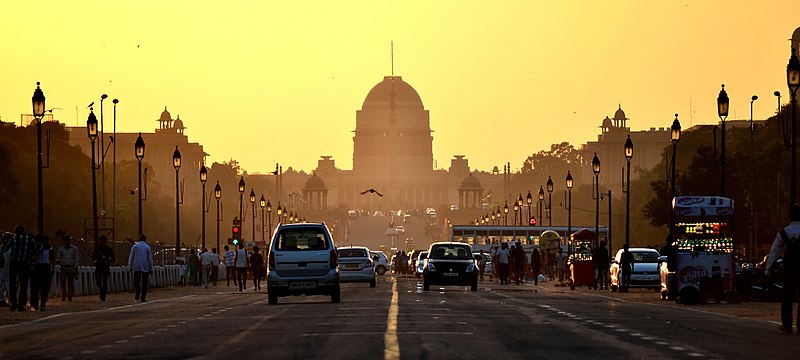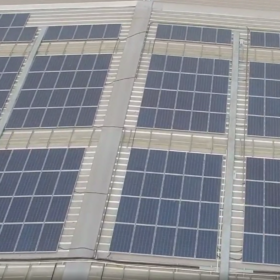Unlike the world’s first 230-foot long bike track in Krommenie (roughly 15 miles north of Amsterdam), India’s bike track will not be paved with solar panels. Instead, panels will be pillar-mounted on both sides, serving the dual purpose of protecting cyclists from rain and sun, as well as generating clean energy.
To be executed by the Public Works Department (PWD) under the Delhi government’s 26-point green budget scheme, this dual-use project is being developed as a model corridor.
Slanted pillars, fitted out with 4.5 meter-wide solar panels, will be erected at the junction of a footpath and a cycle track. The panels are set to cover two meters of the cycle track, and 2.5 meters of the footpath.
The project will use pre-fabricated parts to expedite work. Some of the electricity will be used to power streetlights on the stretch, while the rest will be sold back to the grid. PWD expects to recover its costs within five years.
According to the plan, the tender for the project will be floated by October 31, and the contract will be awarded by the year-end. Work is expected to start on January 15, with the corridor becoming operational by March 2019.
In 2015, India’s Cochin International Airport became the world’s first fully solar powered airport. In July 2017, meanwhile, the country’s first solar-powered DEMU (diesel electric multiple unit) train was launched in New Delhi. The same year, Dhundi Saur Urja Utpadak Sahakari Mandali (DSUUSM), the world’s first solar irrigation cooperative, was launched in Gujarat.
This content is protected by copyright and may not be reused. If you want to cooperate with us and would like to reuse some of our content, please contact: editors@pv-magazine.com.








By submitting this form you agree to pv magazine using your data for the purposes of publishing your comment.
Your personal data will only be disclosed or otherwise transmitted to third parties for the purposes of spam filtering or if this is necessary for technical maintenance of the website. Any other transfer to third parties will not take place unless this is justified on the basis of applicable data protection regulations or if pv magazine is legally obliged to do so.
You may revoke this consent at any time with effect for the future, in which case your personal data will be deleted immediately. Otherwise, your data will be deleted if pv magazine has processed your request or the purpose of data storage is fulfilled.
Further information on data privacy can be found in our Data Protection Policy.